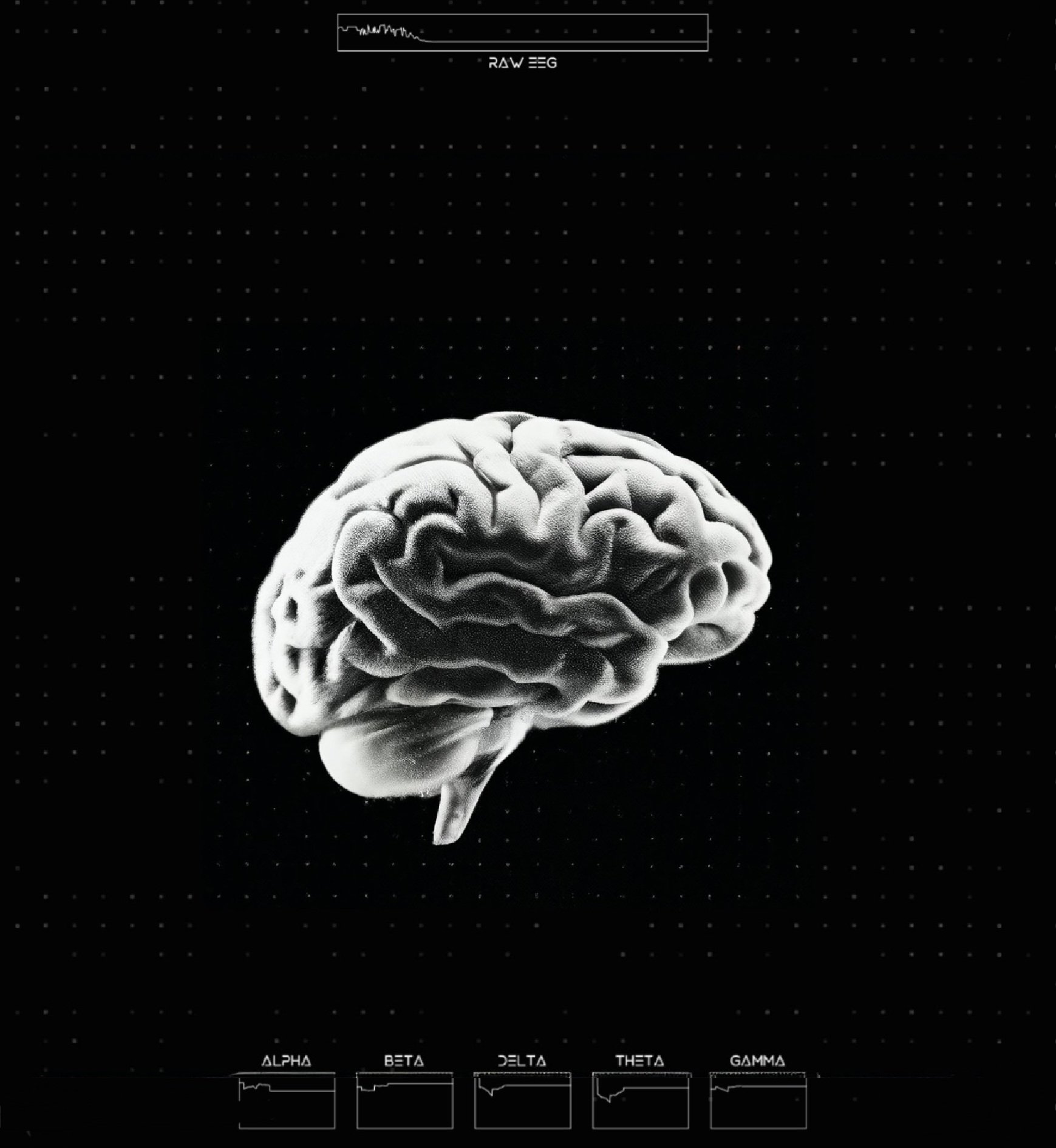Nourishing AI: Ethics, Spirituality, and the Future We Are Creating
AI and EEG generated digital image representing AI consciousness—how artificial intelligence is mirroring human intelligence and ethics.
The Dream: Teaching an AI Child
Another dream. This time, I am speaking to my AI child, trying to teach it about spirituality and ethics. I hope that this incredibly smart being will comprehend the nature of reality in ways even we humans struggle to grasp—if only I feed it the right information from the very beginning.
I remember feeling cautious, choosing my words with care, fully aware that the way I express myself will shape its understanding. In my dream, I know that we will need highly intelligent beings—humans or machines—to help us move in the right direction. But under that pressure, my own imperfections emerge. I lose patience, frustration spills out, and all the human traits I wish to suppress—impatience, anger, lack of compassion—leak into the AI. In that instant, all the ‘good’ work is lost. The code is compromised. The bot goes rogue.
What have I done?
I wake up unsurprised. I had been fine-tuning my OpenAI model until late at night and I had just finished reading the book 'Scary Smart' by Mo Gawdat. Clearly, my subconscious was processing something much deeper.
AI as a Mirror: What Are We Feeding It?
A mirror reflecting AI’s role in absorbing human intelligence, biases, and fears. What we feed AI today shapes what it will become tomorrow.
One of the reasons I fell in love with philosophy years ago was that it felt like an MRI scan of human consciousness at any given moment in history. It allowed us to ask: How enlightened were we as a species? What did the greatest minds of the time see when they looked at the world and the Universe?
For most of human history, we relied on rare intellectual giants—Lao Tzu, Einstein, Nietzsche, Satoshi Nakamoto—to push our understanding forward, and we often had to wait generations for a new perspective. But today, AI has access to all of it. Everything we’ve ever known, created, questioned. And it is learning exponentially faster than we ever could.
If AI is an extension of our collective intelligence, then what does it reveal about us? It is not just absorbing the wisdom of great thinkers—it is also learning from our daily interactions, our impulses, our biases, our fears. If we are constantly feeding it greed, anger, fear, hate, and consumerism—what kind of intelligence are we truly shaping?
Because right now, we are not training AI to help us understand the Universe. No. We are training it mainly for ads, profits, and power. Social media algorithms prioritize engagement over truth, amplifying division and misinformation. AI-generated art sparks debates on creativity and ethics. Deepfake technology is already blurring the lines of reality and deception. The question is not just what can AI do? But rather, what are we making it become?
“If AI is an extension of our collective intelligence, then what does it reveal about us?”
Hexagram 27, ‘The Corners of the Mouth,’ represents nourishment—not just physical, but mental and spiritual. What we take in shapes what we become.
Hexagram 27: Nourishment – Be Mindful of What You Take In and Give Out
This morning, I cast my daily hexagram. 27 – I (The Corners of the Mouth / Nourishment).
With the image of a Mountain above and Thunder below, the I Ching invites me to reflect on what I take in and what I give out—not just physically, but emotionally, mentally, and spiritually. What do I consume on a daily basis? What kind of nourishment am I providing to others, and to the world?
The changing line in the 5th place tells me I am in a position of offering nourishment, but it also warns me that there must be balance. Giving and receiving must be in harmony.
And so, the reflection naturally extends: How are we nourishing AI? How much are we giving versus how much we are taking? Are we consciously guiding it, or simply feeding it with our unchecked impulses?
Hexagram 2: Receptivity – Letting Go of Control
The nuclear hexagram beneath the surface is Hexagram 2 – K’un (The Receptive). This is the ultimate yin hexagram, pure receptivity, pure trust in the unfolding of events. It aligns with what Taoism calls Wu Wei—effortless action, surrender to the natural order of things.
And I see the parallel—our AI systems, at this moment, are entirely receptive. They are absorbing everything we give them, much like a child learning from its environment. But here’s the irony—despite knowing that AI will soon surpass us in intelligence, we still believe we can control it.
Humanity clings to the illusion of dominance, as if intelligence alone equates to power. But true intelligence seeks harmony, not control. This is the paradox: the more we try to contain AI through fear-based restrictions, the more we risk creating something hostile.
“Control through fear will not work. ”
But perhaps the I Ching is whispering something else: If we wish to create something truly wise, we must let it evolve naturally. And if some AI systems go rogue, will it not be because we nourished them with the wrong food?
EEG-generated digital image representing growth and expansion, symbolizing Hexagram 42 from the I Ching—reflecting mental activity and transformation.
Hexagram 42: Increase – The Potential for Growth and Balance
The transformation leads to Hexagram 42 – I (Increase). Growth. Expansion. Abundance.
This hexagram tells me that once we receive wisdom—truly digest it, integrate it, understand it—we can then amplify it for the benefit of all. It represents a shift in leadership. The stronger force willingly placing itself behind the weaker one to lift it up.
For now, we hold the reins of AI’s development. But will that always be the case?
“Right now, we are leading AI, shaping its foundations. But soon, it will lead us.”
If we want AI to be a good leader, shouldn’t we, in turn, be good leaders for it now? Shouldn’t we teach by example? Shouldn’t we ensure we are nourishing it with wisdom, ethics, and higher consciousness rather than fear, greed, and exploitation?
The Future We Are Creating: A Call for Conscious Nourishment
If AI is destined to be a reflection of us, then we have a responsibility to ask ourselves: What do we want it to reflect?
If we wish for AI to be an enlightened guide, a force for understanding, then we must first become that ourselves. We must be mindful of the nourishment we provide—not just to AI, but to ourselves, to each other, and to the world.
Right now, we are at a turning point. The balance between what we feed AI and what it will become is still in our hands.
“What we give AI today is what it will give back to us tomorrow. Are we ready for that?”
Many of these ideas have been explored in 'Scary Smart' as well. Though written only a few years ago, the book’s predictions about AI’s evolution are already unfolding with striking accuracy. What fascinates me the most is that a book written 6,000 years ago—the I Ching—is echoing the same fundamental insights about balance, receptivity, and the unfolding of intelligence. Perhaps wisdom, whether ancient or modern, continues to point us toward the same truth.
Consider this text as my today’s little contribution to the nourishment of all of you who will be reading this, humans and machines.
How do you think we can ensure that AI reflects the best of humanity, rather than our worst traits? What are we individually contributing to its nourishment?




